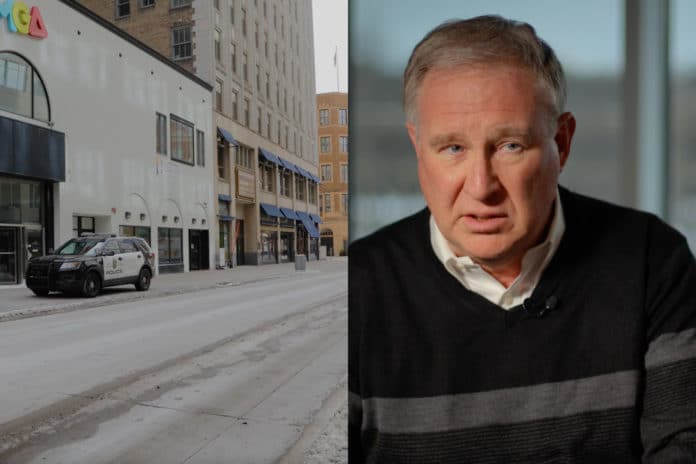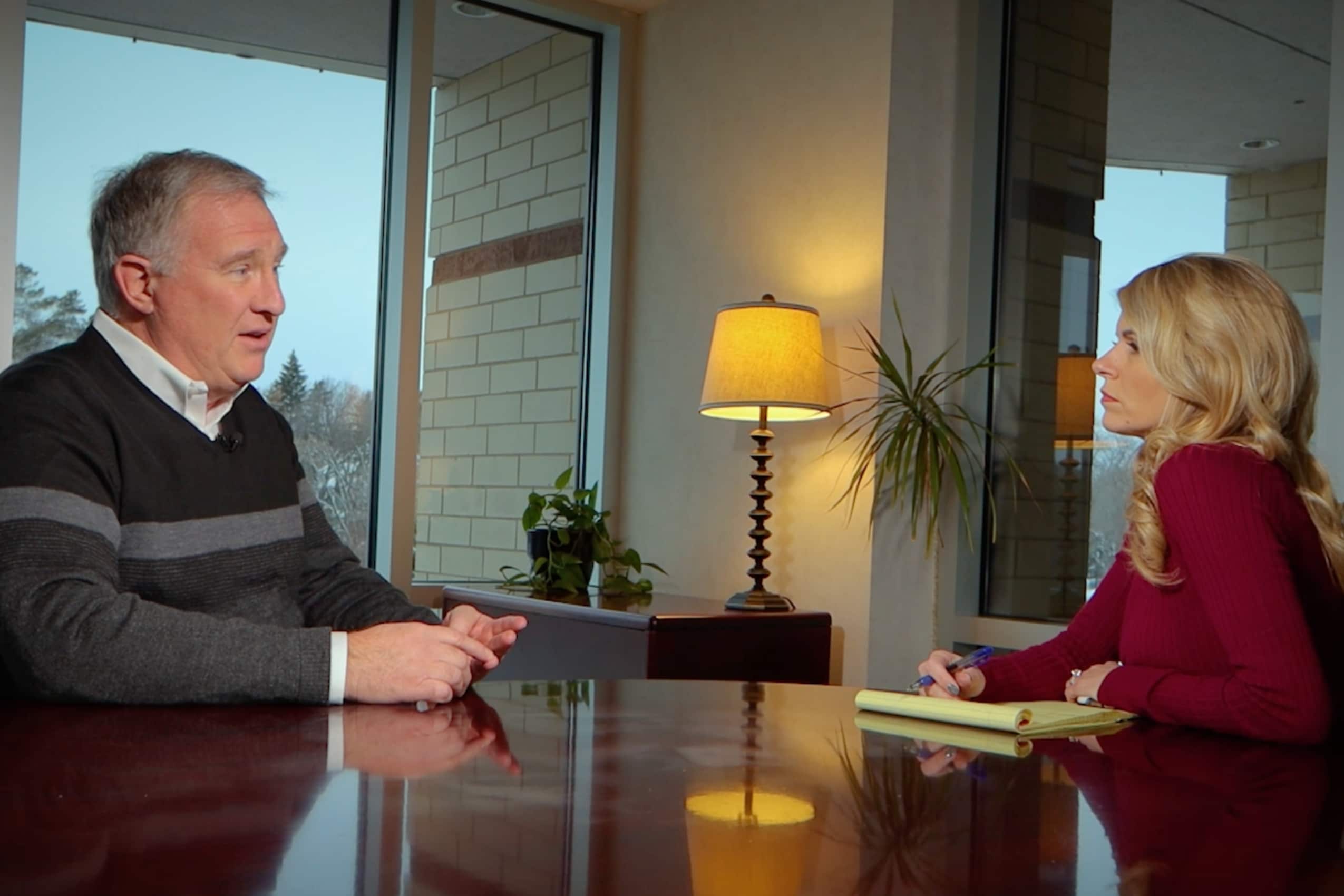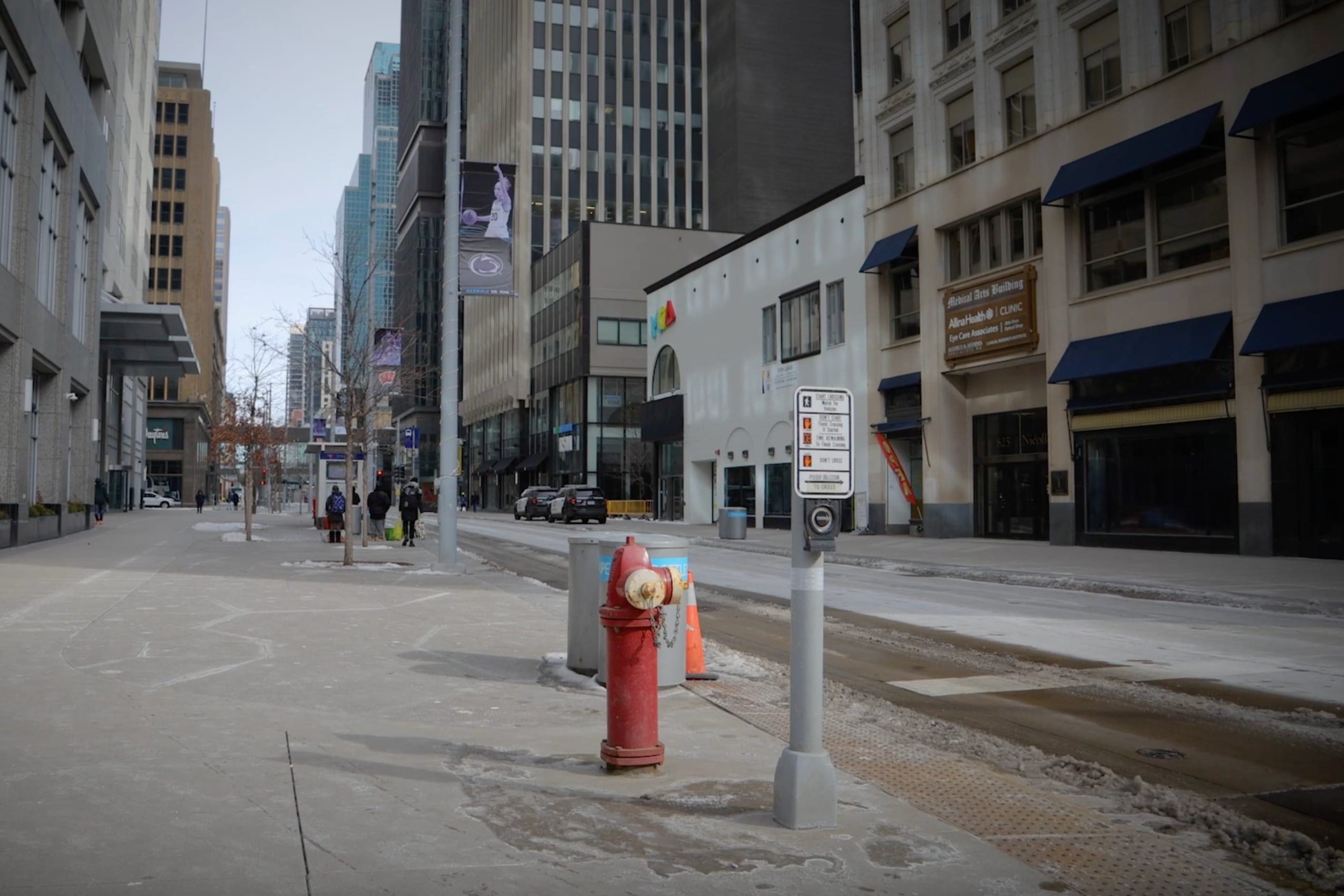
It is no secret that there are far fewer cops on Minneapolis streets today than there were three years ago. But the problem has spread to virtually every department in the city, so much so that some labor leaders are now calling it a crisis.
The consequences for the people who live and work in Minnesota’s largest city are not hard to find.
For more than 30 years, Jim Michels has worked as a Minnesota labor attorney, negotiating contracts for public sector unions, from firefighters and supervisors to police and foremen.
He recently sat down with Alpha News to raise concerns over what’s happening within the ranks of city workers.
“I have never seen anything like this,” Michels told Alpha News. “Those fundamental core services like public safety, roads, sewer, water, I don’t think there’s any debate we need to have those, and they have to be vital and they have to work.”
All told, he represents nearly a third of Minneapolis employees. Vacancies have been climbing since COVID and the riots, he said.
“The police staffing issues are well known and well documented, but I’ve seen that spiral virtually to every department in the city. From public works, to human resources, to regulatory services and it’s really impairing the city as an operating enterprise to deliver the services the people who live and work and recreate in Minneapolis come to expect and deserve,” he said.
Michels explained how the HR department is down 20 to 30% of its allotted positions — the department in charge of city staffing. He cited similar vacancies among 911 dispatchers and snow removal positions, on top of a police department down more than a third in less than three years.
All in a place with many fresh faces at the top.
Michels said at least half of the people who head up city departments in Minneapolis are new to their positions.
“There’s been a failure by leadership to appreciate the paradigm for the labor market generally in Minnesota. There are too many people operating under the assumption that if you don’t like it here, that’s fine, leave and we’ll find someone else to do the job. It’s become increasingly difficult in a short labor market to find somebody else to do the job, which means you need to be competitive in wages, you have to have a working culture and atmosphere where people want to come to work and do good work every day, and you have to have the support of your boss and your leaders,” Michels explained.

“Right now for public employment there are great opportunities in a lot of different places. I know plenty of people who have left high-level positions in Minneapolis and in St. Paul and in other places where I do business that have left for substantially more money in cities or counties or political subdivisions that have far less responsibility,” he added.
Michels believes it goes well beyond pay, with personal safety and reputation also playing a role.
“Their job title is public service worker, but these are the folks that maintain the streets, plow the snow. Those types of people have been attacked, assaulted, shot at. Six months ago a crew was coming back to the garage near Hiawatha and they actually stumbled into a shooting where the victim escaped by jumping into the back of their dump truck,” Michels said.
“I’ve seen more in the last 18 months than in the 30 years prior to that combined,” he added.
Alpha News wondered if people notice a difference in city services.
Crime Watch Minneapolis told Alpha News they’ve logged more plowing complaints than in the past. Three days after a January snowfall, dispatch audio indicated firefighters were struggling to get into a house fire on Garfield Avenue due to unplowed streets.
One frequent Minneapolis visitor told us he’s noticed plow problems.
“I notice a lot, but I don’t know who to blame. I’m not sure if it’s the city or the community, people not removing their cars. Yeah, it’s bad,” he said.
One Minneapolis resident of more than 60 years told us it simply won’t turn around until people feel safe again.
“Forget a whole bunch of the stupid crap and spend money on cops. When the thugs don’t have anyone around to stop them, more crime. It’s common sense,” he said.
“It’s definitely a crisis,” Michels commented.
“The crisis comes not only from the shortage that you also experience but the burden it puts on the people that are still there. That’s just not sustainable because at some point those people are going to say, ‘Why am I doing this when I can go over there and make more money and have less responsibility?’” he added.
The City of Minneapolis declined a request for an interview for this story. But Nikki Odom, the chief human resources officer for the City of Minneapolis, acknowledged there are challenges.

“The City of Minneapolis and other municipal governments and employers in the area are facing many hiring challenges, which are exacerbated by the state’s low unemployment numbers. In response, we have adjusted pay scales and are continually monitoring our benefit offerings and positions to ensure they remain attractive in this competitive job market,” Odom said. “As companies reduce their workforces in response to uncertain economic times, we are confident job candidates will see City employment as reliable. We’re also adding new leadership at the City. I’m one of the approximately 30 new managers who have joined our ranks since the beginning of last year. These and future changes will make our City the employer of choice for many job candidates in the months and years ahead.”
Michels said there is now an effort to study the scope of Minneapolis’s employment problem and figure out what comes next.
He worries that the math may not be in their favor, with thousands of businesses closing their doors.
“Between the combination of COVID and civil unrest, that’s created the decimation of downtown. When you lose that much value out of the downtown you’ve now completely upended the whole tax revenue of the city,” he said. “If you don’t have a thriving downtown that drives the economics of the city, at some point they’re not going to be able to pay competitive wages even if they want to.”














